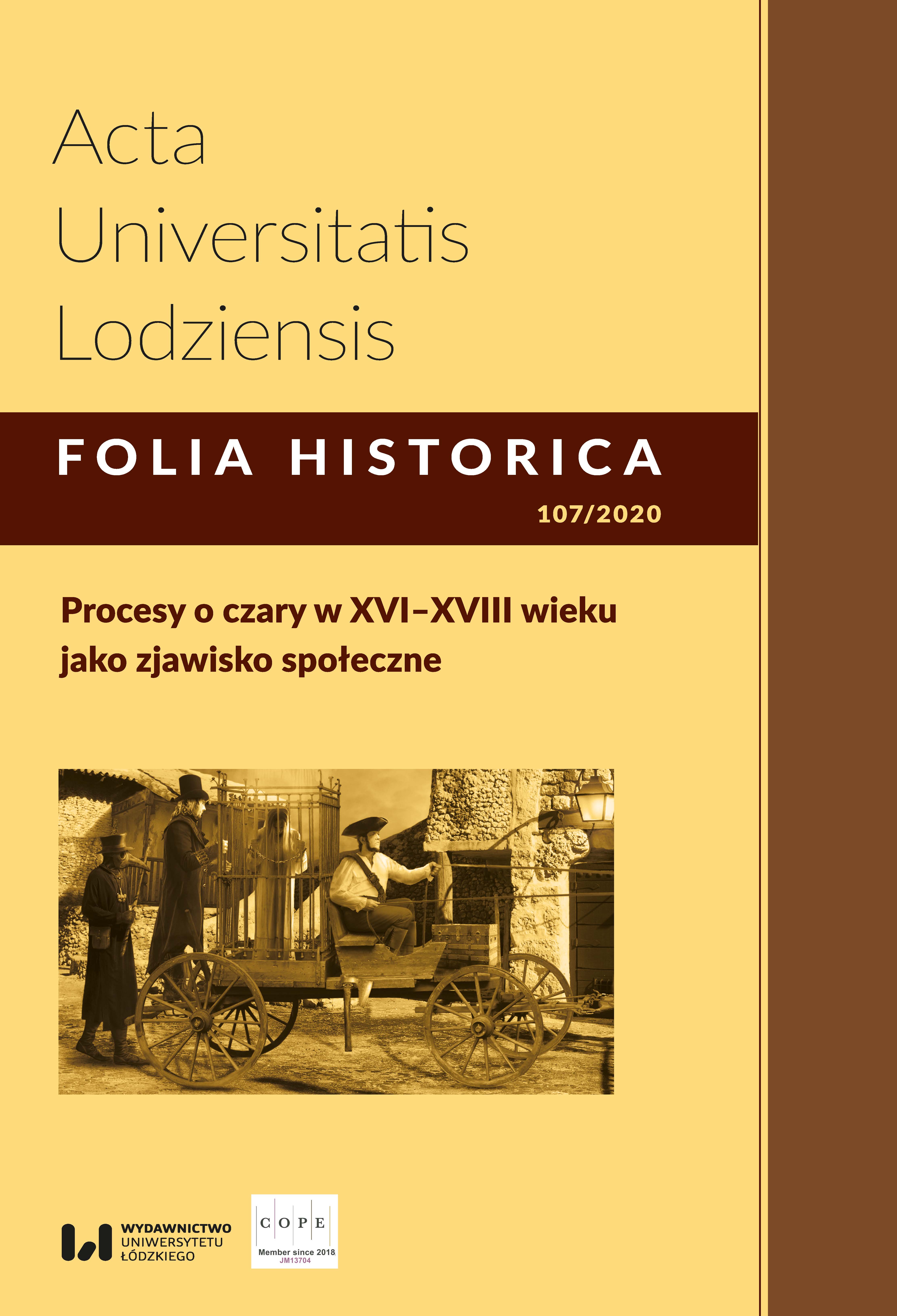„Martwe czarownice”. Procesy i egzekucje zmarłych oskarżonych o magię pośmiertną w dobrach zakonu krzyżackiego na Śląsku i Morawach w XVII i XVIII wieku
“Dead Witches” – trials and executions of the dead, accused of posthumous magic in the property of the Teutonic Order in Silesia and Moravia in the 17th and 18th centuries
Author(s): Daniel WojtuckiSubject(s): History, Law, Constitution, Jurisprudence, 17th Century, 18th Century
Published by: Wydawnictwo Uniwersytetu Łódzkiego
Keywords: vampire; witch; magic; “posthumous magic”; witchcraft trials; Silesia; Moravia; Teutonic Order; suicide; 17th and 18th centuries; Habsburg Monarchy
Summary/Abstract: In the estate archives adjoining Bruntál (German: Freudenthal) and Sovinec (German: Eulenburg), properties belonging to the Teutonic Order, we can find testimonies of many trials of people accused of magical practices. Among these magic-beliefs can be found examples a “posthumous magic”, i.e. magic related people who made pacts with the devil during their lifetime and, after death returned to harass the living. One of the first documented cases “magia posthuma” in the Silesian – Moravian borderlands was recorded toward the end of the 16th century. By the end of the 17th century, a belief that a deceased person accused of this type of magic could “infect” other dead who died after it, began to develop. “Dead witches”, because that’s how you can call them, who still had during their lifetime dedicate themselves to the service of the devil, and were not revealed until their death, could have been used by him after his death. In “tracking” of the deceased, local clergy and superior authorities were involved. The persecution of the deceased on the basis of this beliefs was documented in the Teutonic estates, mainly in: Arnoltice (German: Arnsdorf ), Břidličná (before Frýdlant, German: Friedland an der Mohra), Světlá (German: Lichtewerden), Václavov u Bruntálu (German: Wildgrub). Based on the collected examples of the Teutonic goods, it can be concluded that the most common the way to permanently neutralize a person accused of posthumous magic was to burn his corpse, or burial on the edge of the village.
Journal: Acta Universitatis Lodziensis. Folia Historica
- Issue Year: 2020
- Issue No: 107
- Page Range: 153-197
- Page Count: 45
- Language: Polish

